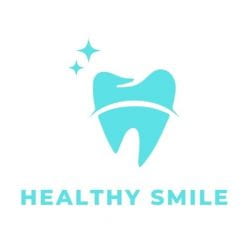
Your entire body can benefit immensely from a restful night’s sleep. When you don’t get enough sleep, your body is unable to fully unwind your muscles and brain, regain its vitality, and repair any tissues and cells that have been injured. The majority of patients who experience irritability, daytime sleepiness, and mental fog as a result of sleep deprivation have an underlying condition that interferes with their ability to fall asleep. For instance, poor oral health can be linked to poor sleep.
Problems with Oral Health and Lack of Sleep
Snoring Apnea
People with obstructed sleep apnea experience brief pauses in breathing throughout the course of the night. Snoring, dry mouth, headaches, irritability, mood swings, weariness, and daytime sleepiness can all be signs of sleep apnea. Being sleepy during the day can make you neglect your dental hygiene routine, which can raise your chance of getting gum disease and tooth decay. Dental disease is also more likely to develop if you have dry mouth. Less saliva allows dangerous germs to proliferate in your mouth and inhibits the remineralization of your tooth enamel.
Bruxism
Teeth grinding, or bruxism, can damage teeth and cause jaw discomfort, dental sensitivity, and discolouration. If addressed, bruxism can lead to major problems with dental health and cause extra sleep loss as a result of tension, anxiety, and tooth pain. The cushioning effect of a personalised nightguard helps shield your teeth from harm.
Guidelines for Better Sleep
Are you interested in learning how to improve your oral health and sleep? Here are some of our best suggestions for enhancing your smile and sleep quality!
a. To address any underlying concerns, get help (sleep apnea, bruxism, anxiety, stress, etc.)
b. Drink enough water all day long to stay hydrated.
c. Eat a balanced diet that includes a lot of fresh fruits and vegetables.
d. Set a regular bedtime to maintain a healthy circadian rhythm.
e. Avoid using screens of any kind before night, preferably for at least an hour.
f. Make sure your bed is comfortable and soothing, as well as your bedroom.
g. Make sure to exercise enough! According to the official evidence-based recommendations, individuals should engage in 75 minutes per week of strenuous activity or at least 150 minutes per week of moderate exercise. 2 minutes of moderate activity is about similar to 1 minute of strenuous activity, plus muscle-strengthening exercises that target all major muscle groups at least twice a week.
Schedule a consultation for oral health!
Have you ever realised that you lack sleep? Do you have problems with your oral health? The two might be connected! Our skilled staff at our St Albans dentistry office can assist you in identifying the source of your sleep problems and in regaining a healthy, radiant smile. Please get in touch with us to arrange your consultation!
